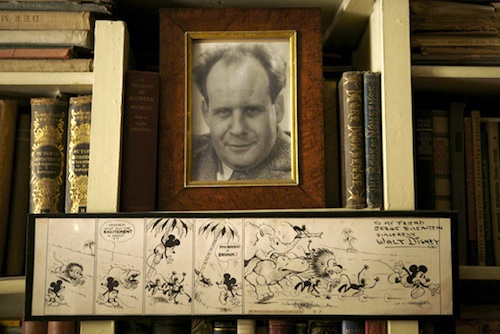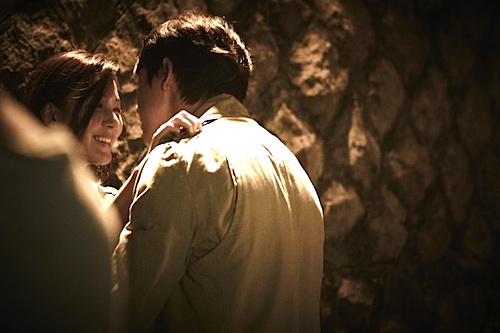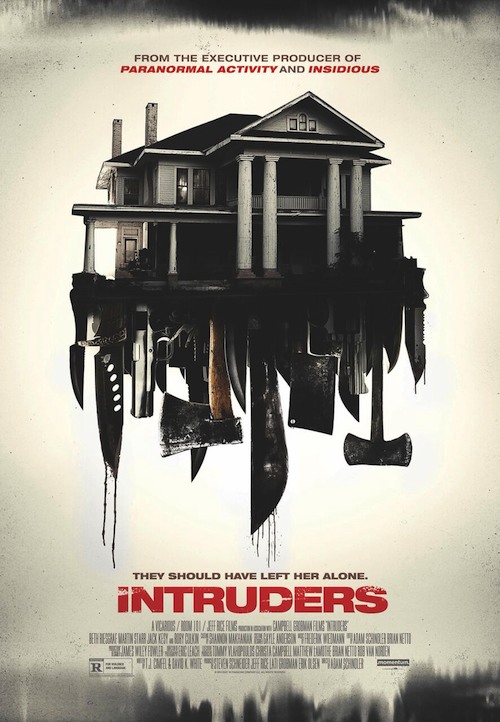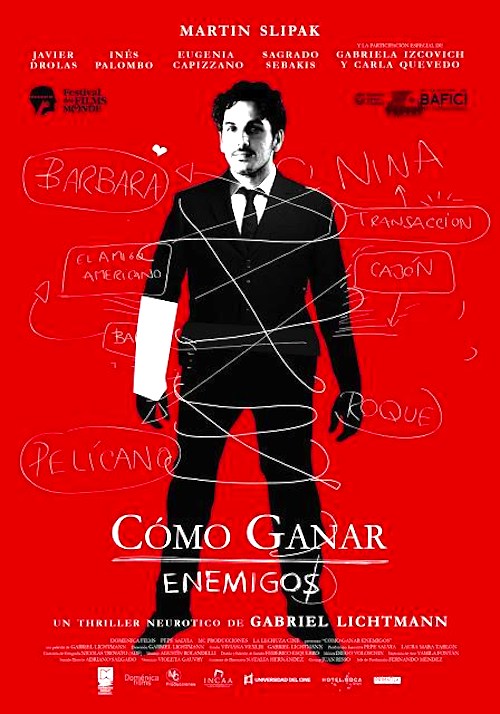 By Joe Bendel. Lucas Abadi might not look like much, but he has an encyclopedic knowledge of Argentine law and an intimate familiarity with Patricia Highsmith’s Ripley novels. When a femme fatale slips him a mickey to plunder his life savings, Abadi will use his hardboiled insights to track down the mystery culprit who put her up to the job in Gabriel Lichtmann’s How to Win Enemies, which screens during the 2016 New York Jewish Film Festival.
By Joe Bendel. Lucas Abadi might not look like much, but he has an encyclopedic knowledge of Argentine law and an intimate familiarity with Patricia Highsmith’s Ripley novels. When a femme fatale slips him a mickey to plunder his life savings, Abadi will use his hardboiled insights to track down the mystery culprit who put her up to the job in Gabriel Lichtmann’s How to Win Enemies, which screens during the 2016 New York Jewish Film Festival.
Lucas Abadi has the brains, but he lacks his older brother Max’s charm and ambition. The caper in question will unfold as Max the beaming groom reads the wedding speech his visibly uncomfortable brother ghost-wrote for him. In retrospect, the woman calling herself “Barbara” was probably too good to be true: a sultry legal secretary who shared his passion for Highsmith and Agatha Christie. Their first date goes swimmingly until Abadi wakes up with a headache and his recent cash withdrawal missing.
His colleagues urge him to dismiss the incident as a random crime, but his instincts beg to differ. She knew exactly what she was looking for—and there are only four suspects who knew he was taking out money for a down-payment on a flat. Frankly, Barbara’s copy of American Friend is just too suspicious not to be an inside job.
Somehow Lichtmann strikes a rare tone with Enemies. He keeps things light, but still serious. Abadi is dealing with some profound issues of betrayal, but he is never in mortal peril, per se. It is therefore rather easy to watch him peel back layers of the onion, but there are always real stakes involved.
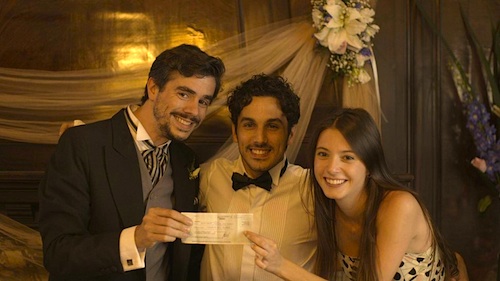
It sort of takes a little time to warm to Martin Slipak’s nebbish portrayal of Abadi, but this is definitely a case where slow and steady wins the race. Ines Palombo’s “Barbara” certainly seems like all kinds of dangerous. Sagrado Sebakis notably brings some refreshingly off-kilter comic relief as “the Pelican,” the firm’s off-the-books “consultant” and Abadi’s prime suspect. As the librarian, Carla Quevedo also makes a strong impression with limited screen time, following in the tradition of Dorothy Malone as the bookseller in The Big Sleep.
Enemies is quite a smart and wry little film. It is doomed to be compared to Daniel Burman’s chronicles of upper middle class Jewish Argentines, but Lichtmann’s caper is less fussbudget-ish and has considerably more narrative drive. Its narrow scope and low key eccentricities could be lost on those who expect liberal helpings of either bombast and/or shtick, but it is really quite a lot of fun. Affectionately recommended, How to Win Enemies screens twice this Thursday (1/21) at the Walter Reade Theater, as part of this year’s NYJFF.
LFM GRADE: B+
Posted on January 19th, 2016 at 8:33pm.


